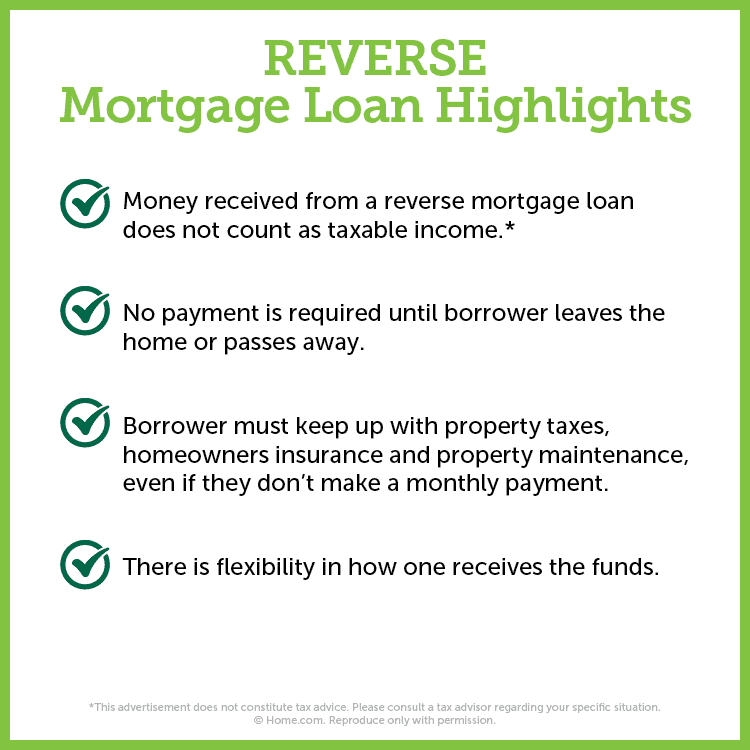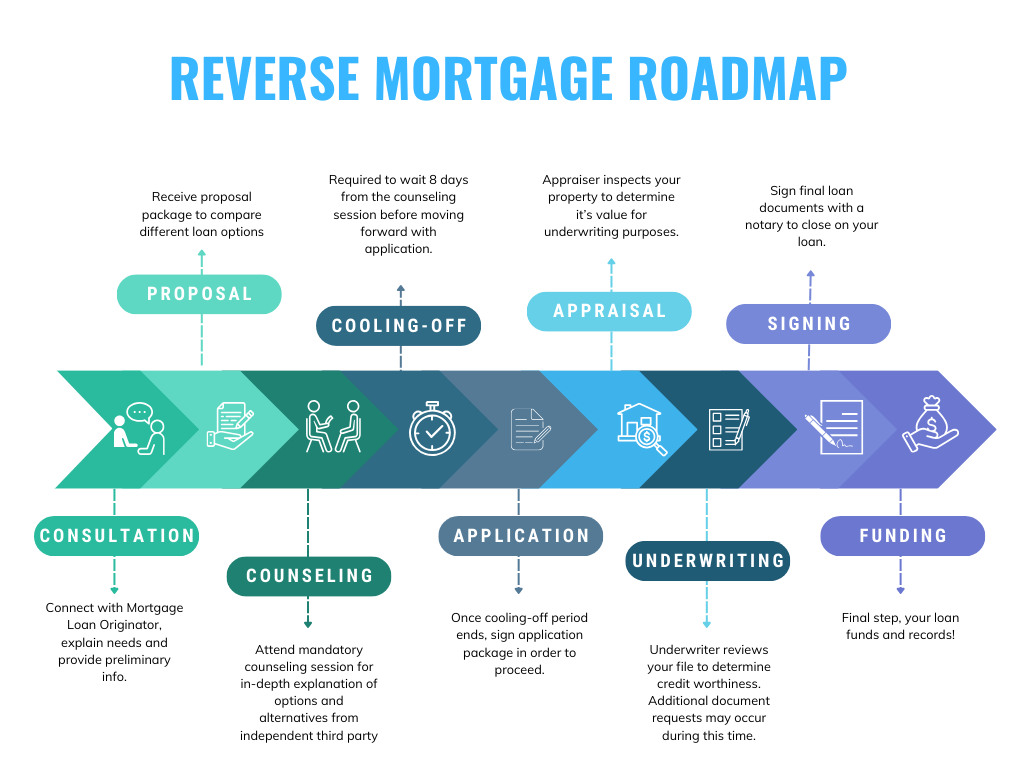Why More Homeowners Are Deciding to Purchase Reverse Mortgage
Why More Homeowners Are Deciding to Purchase Reverse Mortgage
Blog Article
Unlock Financial Flexibility: Your Guide to Getting a Reverse Mortgage
Recognizing the intricacies of reverse home loans is essential for house owners aged 62 and older looking for monetary flexibility. This unique monetary tool enables senior citizens to utilize their home equity, transforming it into obtainable cash for different needs, from medical care to way of living enhancements. Navigating the eligibility advantages, criteria, and prices can be complex. As you consider this option, it is critical to grasp not only how it works but also the implications it may carry your economic future. What are the vital elements you should evaluate before making such an impactful decision?
What Is a Reverse Home Mortgage?

The essential allure of a reverse mortgage depends on its potential to improve economic flexibility during retired life. Property owners can make use of the funds for various functions, consisting of clinical expenditures, home improvements, or daily living expenses, hence providing a safeguard during a critical stage of life.
It is vital to understand that while a reverse home mortgage allows for increased capital, it additionally decreases the equity in the home over time. As passion builds up on the superior funding equilibrium, it is vital for potential customers to very carefully consider their long-lasting economic strategies. Consulting with an economic advisor or a reverse mortgage specialist can provide valuable insights into whether this option aligns with an individual's financial goals and circumstances.
Qualification Needs
Recognizing the qualification demands for a reverse home loan is crucial for house owners considering this economic choice. To qualify, applicants must be at least 62 years old, as this age requirement allows seniors to accessibility home equity without month-to-month home loan repayments. Additionally, the homeowner must inhabit the house as their key residence, which can consist of single-family homes, specific condominiums, and made homes fulfilling certain guidelines.
Equity in the home is an additional crucial demand; property owners generally require to have a substantial amount of equity, which can be identified via an assessment. The amount of equity available will straight influence the reverse home mortgage quantity. Additionally, candidates have to demonstrate the capacity to preserve the home, including covering real estate tax, home owners insurance policy, and maintenance prices, guaranteeing the property continues to be in good problem.
Additionally, potential consumers should go through an economic evaluation to examine their revenue, credit report, and overall monetary scenario. This assessment helps loan providers establish the applicant's ability to meet continuous responsibilities connected to the residential or commercial property. Satisfying these demands is critical for securing a reverse mortgage and guaranteeing a smooth monetary shift.
Advantages of Reverse Mortgages
Many advantages make reverse home mortgages an enticing alternative for elders looking to enhance their financial adaptability. purchase reverse mortgage. One of the primary advantages is the ability to convert home equity into cash money without the need for monthly home loan repayments. This function enables senior citizens to gain access to funds for Your Domain Name different needs, such as medical expenses, home renovations, or daily living prices, therefore alleviating financial stress
In addition, reverse home mortgages supply a safety and security web; senior citizens can proceed to stay in their homes for as lengthy as they satisfy the funding demands, fostering security throughout retirement. The proceeds from a reverse mortgage can likewise be utilized to postpone Social Security advantages, potentially causing greater payments later.
Additionally, reverse mortgages are non-recourse lendings, suggesting that debtors will certainly never ever owe greater than the home's worth at the time of sale, shielding them and their beneficiaries from monetary obligation. The funds gotten from a reverse home mortgage are usually tax-free, adding an additional layer of monetary relief. In general, these benefits position reverse home mortgages as a practical remedy for elders looking for to enhance their economic circumstance while preserving their treasured home atmosphere.

Charges and prices Included
When thinking about a reverse home loan, it's necessary to be mindful of the numerous costs and charges that can influence the overall financial image. Understanding these expenditures is essential for making a notified decision about whether this economic product is best for you.
Among the main costs linked with a reverse home loan is the origination charge, which visit this site can vary by loan provider however generally ranges from 0.5% to 2% of the home's appraised value. In addition, property owners need to prepare for closing expenses, which may consist of title insurance policy, assessment fees, and credit report charges, generally amounting to several thousand dollars.
Another significant cost is home loan insurance premiums (MIP), which secure the loan provider versus losses. This fee is normally 2% of the home's worth at closing, with a continuous annual premium of 0.5% of the staying finance equilibrium.
Finally, it's important to think about recurring expenses, such as real estate tax, property owner's insurance coverage, and upkeep, as the borrower remains accountable for these expenditures. By carefully assessing these charges and prices, home owners can much better evaluate the monetary effects of going after a reverse mortgage.
Steps to Obtain Started
Starting with a reverse mortgage involves several vital actions that can help improve the procedure and ensure you make notified decisions. Initially, evaluate your monetary scenario and identify if a reverse mortgage aligns with your long-term goals. This consists of assessing your home equity, present financial obligations, and the requirement for extra revenue.
Following, research different lenders and their offerings. Look for respectable organizations with positive testimonials, transparent charge frameworks, and competitive rate of interest. It's vital to compare terms explanation and problems to find the very best suitable for your requirements.
After picking a lending institution, you'll need to finish a comprehensive application procedure, which usually requires paperwork of income, possessions, and home details. Take part in a therapy session with a HUD-approved therapist, that will supply understandings into the implications and obligations of a reverse home mortgage.
Verdict
To conclude, reverse home mortgages offer a feasible choice for senior citizens seeking to boost their monetary stability during retirement. By converting home equity into available funds, homeowners aged 62 and older can deal with different economic demands without the stress of monthly repayments. Understanding the details of qualification, benefits, and linked expenses is important for making informed choices. Careful consideration and preparation can cause improved quality of life, making certain that retirement years are both protected and satisfying.
Recognizing the ins and outs of reverse home mortgages is crucial for house owners aged 62 and older looking for financial flexibility.A reverse home mortgage is an economic product developed mostly for home owners aged 62 and older, allowing them to transform a section of their home equity into cash - purchase reverse mortgage. Consulting with a reverse home loan or an economic expert professional can offer valuable insights right into whether this choice straightens with an individual's economic objectives and circumstances
Moreover, reverse home loans are non-recourse lendings, suggesting that customers will certainly never owe even more than the home's value at the time of sale, protecting them and their beneficiaries from monetary responsibility. On the whole, these advantages position reverse home loans as a sensible service for senior citizens looking for to improve their financial situation while keeping their treasured home setting.
Report this page